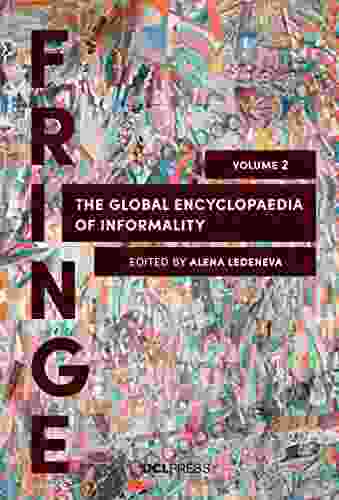Eugenics, Social Reform, and the Legacy of Feeblemindedness in Maine: An Enthralling Historical Exploration

In the annals of American history, the era of eugenics stands as a dark and enigmatic chapter, marked by misguided scientific beliefs and tragic social consequences. Maine, like many other states, embarked on a eugenics campaign that aimed to improve the genetic makeup of its population by sterilizing and segregating individuals deemed "feebleminded." This comprehensive article delves into the intricate history of eugenics in Maine, examining its origins, methods, and lasting impact on society.
4.7 out of 5
| Language | : | English |
| File size | : | 5376 KB |
| Text-to-Speech | : | Enabled |
| Enhanced typesetting | : | Enabled |
| Word Wise | : | Enabled |
| Print length | : | 286 pages |
| Screen Reader | : | Supported |
Origins and Scientific Foundations
The concept of eugenics emerged in the late 19th century, fueled by the rise of genetics and the belief in the inheritance of certain traits. Social Darwinism, a distorted interpretation of Darwin's theory of evolution, provided a justification for the application of eugenic principles to human society. In Maine, influential figures such as Dr. William Robinson and Dr. Paul Popenoe advocated for eugenic policies to reduce the prevalence of "undesirable" traits, such as mental illness, criminality, and poverty.
Sterilization and Segregation
The cornerstone of Maine's eugenics program was sterilization, a surgical procedure that prevents individuals from reproducing. Between 1925 and 1963, over 2,000 Mainers were forcibly sterilized under the guise of preventing the transmission of "feeblemindedness." These individuals were often inmates of institutions for the mentally disabled or orphans.
In addition to sterilization, Maine also implemented segregation policies to isolate "feebleminded" individuals from mainstream society. The Pownal State School, established in 1907, became a custodial institution for those labeled as mentally deficient. Overcrowding, inhumane conditions, and a lack of educational and rehabilitation opportunities characterized life at Pownal.
Social Reform and Ethical Dilemmas
Eugenics in Maine was closely intertwined with broader social reform movements of the early 20th century. Progressive reformers saw eugenics as a means to address societal problems such as crime, poverty, and mental illness. They argued that by eliminating the "feebleminded" population, society could improve its overall well-being.
However, the ethical implications of eugenics were deeply troubling. The definition of "feeblemindedness" was vague and often arbitrary, leading to the sterilization and segregation of individuals who were simply poor, disabled, or non-conforming. The program disproportionately targeted vulnerable populations, including immigrants, people of color, and the economically disadvantaged.
The Legacy of Feeblemindedness
The legacy of eugenics in Maine continues to resonate today. Many survivors of sterilization have suffered lifelong emotional and psychological trauma. The stigma associated with "feeblemindedness" persists, affecting the lives of individuals with disabilities and their families.
Moreover, the history of eugenics has raised profound questions about the limits of scientific authority, the role of government in shaping human lives, and the importance of protecting the rights of all individuals, regardless of their abilities or social status.
The history of eugenics in Maine is a cautionary tale about the dangers of scientific hubris and the pursuit of a perfect society at the expense of human dignity. By examining this dark chapter, we can gain a deeper understanding of the ethical complexities of genetics and social reform. The legacy of feeblemindedness reminds us of the importance of compassion, equality, and the recognition that every human life is inherently valuable.
4.7 out of 5
| Language | : | English |
| File size | : | 5376 KB |
| Text-to-Speech | : | Enabled |
| Enhanced typesetting | : | Enabled |
| Word Wise | : | Enabled |
| Print length | : | 286 pages |
| Screen Reader | : | Supported |
Do you want to contribute by writing guest posts on this blog?
Please contact us and send us a resume of previous articles that you have written.
 Book
Book Novel
Novel Page
Page Chapter
Chapter Text
Text Story
Story Genre
Genre Reader
Reader Library
Library Paperback
Paperback E-book
E-book Magazine
Magazine Newspaper
Newspaper Paragraph
Paragraph Sentence
Sentence Bookmark
Bookmark Shelf
Shelf Glossary
Glossary Bibliography
Bibliography Foreword
Foreword Preface
Preface Synopsis
Synopsis Annotation
Annotation Footnote
Footnote Manuscript
Manuscript Scroll
Scroll Codex
Codex Tome
Tome Bestseller
Bestseller Classics
Classics Library card
Library card Narrative
Narrative Biography
Biography Autobiography
Autobiography Memoir
Memoir Reference
Reference Encyclopedia
Encyclopedia Maria Housden
Maria Housden Sarah Eppler Janda
Sarah Eppler Janda Pets Unchained
Pets Unchained Lea Rawls
Lea Rawls Liz Isaacson
Liz Isaacson Maggie Humm
Maggie Humm Lesley Bartlett
Lesley Bartlett Laura Harjo
Laura Harjo Leona Grace
Leona Grace M D Stewart
M D Stewart Lindsay Mckenna
Lindsay Mckenna Lynn K Hall
Lynn K Hall Susan M Brookhart
Susan M Brookhart Randall Wood
Randall Wood Stephen Catanzarite
Stephen Catanzarite Randy Shaw
Randy Shaw Margaret Stump
Margaret Stump Lauren Vicker
Lauren Vicker Luni5 Apresenta
Luni5 Apresenta Laura Carno
Laura Carno
Light bulbAdvertise smarter! Our strategic ad space ensures maximum exposure. Reserve your spot today!

 Gabriel BlairUnlock the Power of Multiple Fixed Point Theorems: Explore the Intricacies of...
Gabriel BlairUnlock the Power of Multiple Fixed Point Theorems: Explore the Intricacies of... Carlos FuentesFollow ·18.9k
Carlos FuentesFollow ·18.9k Haruki MurakamiFollow ·8.2k
Haruki MurakamiFollow ·8.2k Casey BellFollow ·14.8k
Casey BellFollow ·14.8k Dawson ReedFollow ·18.8k
Dawson ReedFollow ·18.8k Everett BellFollow ·11.8k
Everett BellFollow ·11.8k Jean BlairFollow ·6.2k
Jean BlairFollow ·6.2k Dennis HayesFollow ·7.2k
Dennis HayesFollow ·7.2k William PowellFollow ·4.6k
William PowellFollow ·4.6k

 W.H. Auden
W.H. AudenTerrorist Events Worldwide 2024: A Comprehensive Guide to...
Terrorism is a global threat that affects...

 Carson Blair
Carson BlairBeautifully Uplifting And Enchanting Novel Set In The...
Set in the beautiful West Country, this...

 Jeffrey Cox
Jeffrey CoxAn Utterly Captivating and Uplifting Story of One Woman's...
Immerse yourself in an extraordinary...

 Greg Foster
Greg FosterEngaging the Issues Through the Politics of Compassion
: The Power of...
4.7 out of 5
| Language | : | English |
| File size | : | 5376 KB |
| Text-to-Speech | : | Enabled |
| Enhanced typesetting | : | Enabled |
| Word Wise | : | Enabled |
| Print length | : | 286 pages |
| Screen Reader | : | Supported |














